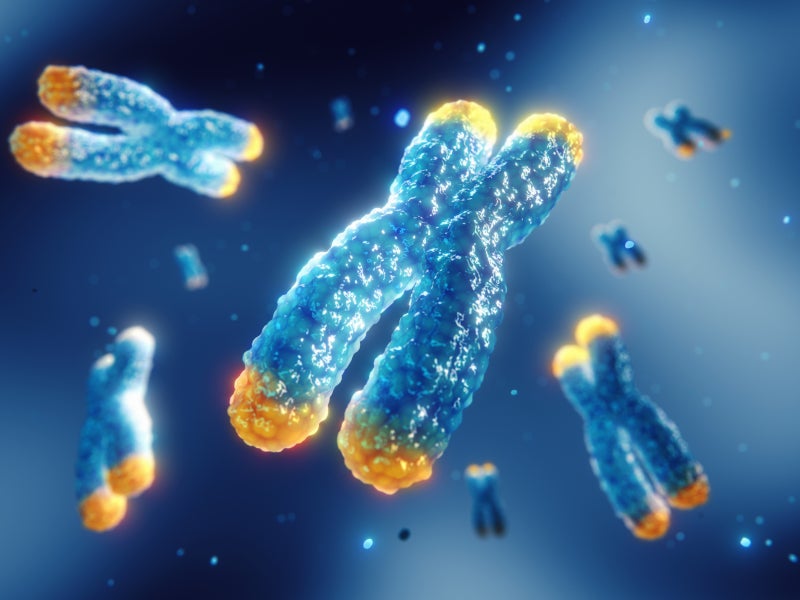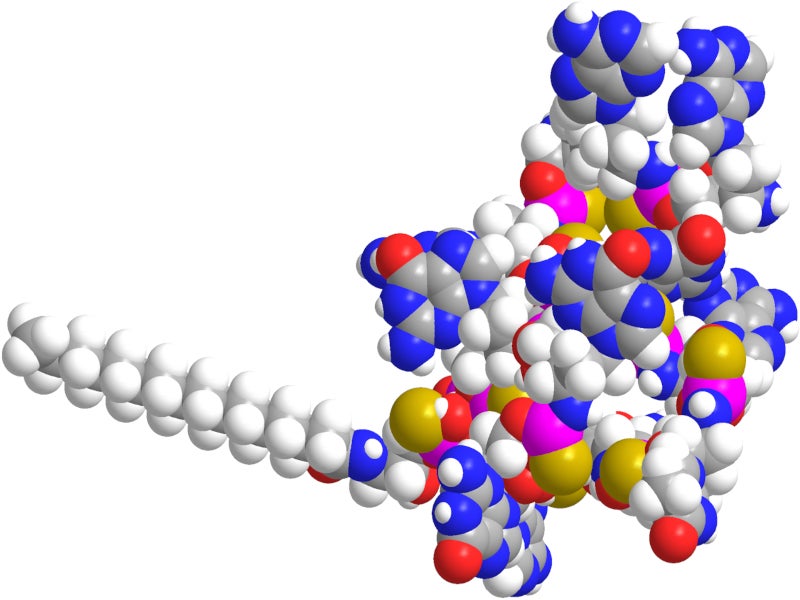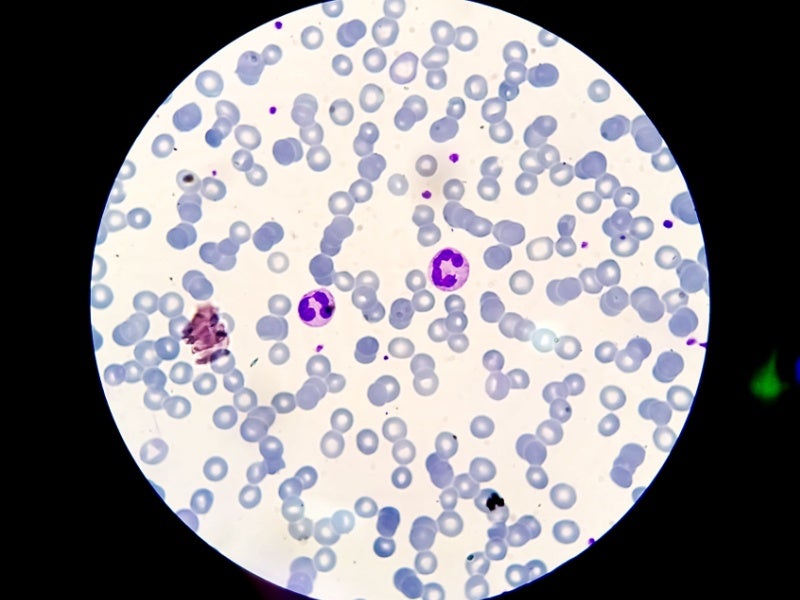RYTELO (imetelstat) is indicated for the treatment of low-to-intermediate-1-risk myelodysplastic syndromes (MDS) in adult patients who exhibit transfusion-dependent (TD) anaemia.
The treatment is specifically designed for those requiring four or more red blood cell units over eight weeks and who have not responded to, lost response to, or are ineligible for erythropoiesis-stimulating agents (ESAs).
RYTELO is developed by Geron, a biopharmaceutical company based in the US. It is available as a white to off-white or slightly yellow lyophilised powder, in a single-dose vial for reconstitution and subsequent intravenous infusion.
The vial is available in 47mg and 188mg dosage strengths.
Regulatory approvals for RYTELO
The US Food and Drug Administration (FDA) approved RYTELO for the treatment of MDS in June 2024.
The drug is also under regulatory review by the European Committee for Medicinal Products for Human Use.
Imetelstat holds Fast Track designation from the FDA for treating adults with TD anaemia due to low or intermediate-1 risk MDS that is not associated with del(5q) who are refractory or resistant to an ESA, and for treating adults with intermediate-2 or high-risk myelofibrosis whose disease has relapsed after or is refractory to Janus associated kinase inhibitor treatment.
Myelodysplastic syndromes causes and symptoms
MDS represent a spectrum of disorders characterised by poorly formed or dysfunctional blood cells.
The condition often stems from the premature death of these cells within the bone marrow or their premature release into the bloodstream.
Symptoms associated with MDS include fatigue, infections, shortness of breath, anaemia, thrombocytopenia, petechiae, leukopenia, and bleeding.
While the exact cause of MDS remains unclear, links have been made to prior cancer treatments such as chemotherapy and radiation, as well as exposure to chemicals like benzene.
Patients with low-risk (LR)-MDS usually experience a progression of the disease that necessitates more intensive management, particularly of anaemia-related symptoms.
As the disease advances, patients often become dependent on red blood cell transfusions, which can lead to diminished quality of life and reduced survival.
RYTELO’s mechanism of action
Imetelstat is an oligonucleotide human telomerase (hTR) inhibitor that inhibits the enzymatic activity of telomerase and prevents telomere binding by binding to the template region of the RNA component of hTR.
Telomeres are protective structures located at the ends of chromosomes that progressively shorten with each cell division.
In LR-MDS, abnormal bone marrow cells frequently produce the enzyme telomerase, which reconstructs these telomeres and permits unchecked cell division.
Telomerase activity and the expression of human telomerase reverse transcriptase RNA are known to be elevated in MDS and malignant stem and progenitor cells.
Nonclinical studies have demonstrated that imetelstat treatment results in shortened telomere length, reduced proliferation of malignant stem and progenitor cells, and induced apoptotic cell death.
Clinical trial on RYTELO
The FDA’s approval of RYTELO is based on the findings from the IMerge Phase III clinical trial.
The pivotal study was a randomised, double-blind, placebo-controlled multicentre trial involving 178 MDS patients.
Participants were administered imetelstat at a dose of 7.1mg/kg or a placebo via intravenous infusion in 28-day cycles until disease progression or the emergence of unacceptable toxicity.
Efficacy was determined after a median follow-up of 19.5 months for the imetelstat group and 17.5 months for the placebo group.
The primary measure of success was determined based on the proportion of patients achieving red blood cell transfusion independence (RBC-TI) for at least eight weeks and at least 24 weeks.
The trial met its primary and key secondary endpoints, with RYTELO showing significantly higher rates of RBC-TI compared to placebo.
Specifically, 39.8% of patients treated with RYTELO achieved at least eight-week RBC-TI, compared to 15% in the placebo group.
For at least 24 weeks of RBC-TI, the rates were 28% for RYTELO versus 3.3% for the placebo group.
Notably, RBC-TI was durable and sustained in the patients treated with RYTELO with median durations of approximately one year for eight-week responders and 1.5 years for 24-week responders.
The most common adverse reactions were decreased platelets, white blood cells, and neutrophils, increased levels of aspartate aminotransferase, alkaline phosphatase, alanine aminotransferase, fatigue, prolonged partial thromboplastin time, arthralgia or myalgia, Covid-19 infections, and headache.





